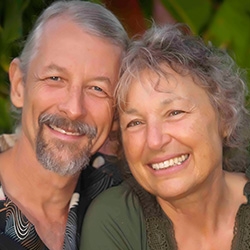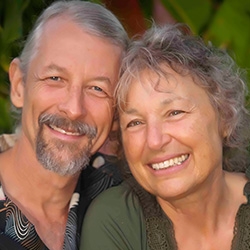
NVC Resources on Connection
-
Old emotional hurts and pains can easily erupt when you’re in the throes of conflict – even if you’re the mediator. Wouldn’t it be lovely if you could avoid all of that, and instead create more peace and happiness for yourself, your family, your co-workers and your community?
-
In this audio recording, Sylvia Haskvitz, veteran CNVC Certified Trainer, offers an in-depth discussion of the Nonviolent Communication process of empathy.
-
Ask the Trainer: “I would love some clarity about the NVC perspective on the cause of our feelings. It seems to me that my needs may be met or not, but the cause of my painful feelings is my story around the situation.”
-
Can you give me advice on what to do when people won't talk to me? I find it very difficult to discover what their needs are that aren't being met! Also, how can I be effective with people who don't actually want to think about why they're being the way they are?
-
As parents, we often face challenging situations on a daily basis and struggle to create what we most long for. In this 6 session telecourse recording, you will learn how Nonviolent Communication can support a family culture where cooperation, trust, and peace are nurtured, and children and parents can flourish together.
-
Join veteran Mediators and Facilitators, Jori and Jim Manske in using Nonviolent Communication and mediation skills for transforming conflict into connection between yourself and others.
-
In this telecourse recording, you will learn and practice self-awareness skills to fine tune your attention to met needs; savoring feelings of well-being; expressing these feelings to others; and receiving other people's messages of joy, gratitude, inspiration and more!
-
Jori and Jim Manske offer a process they call "The Zero Step," encompassing the characteristics of warmth toward self and other, care for the vitality of both yourself and other(s), wonder/interest, vulnerability and empathy, which leads directly to connection requests and an openness to outcome.
-
Join Susan Skye as she guides you to experience profound transformation of the inner jackal messages resulting from childhood trauma. Discover how the limbic system of the brain works, and transform jackal messages stored there with compassionate connection.
-
This telecourse recording is for anyone wanting to integrate empathy into his/her life in a more natural, authentic way.










